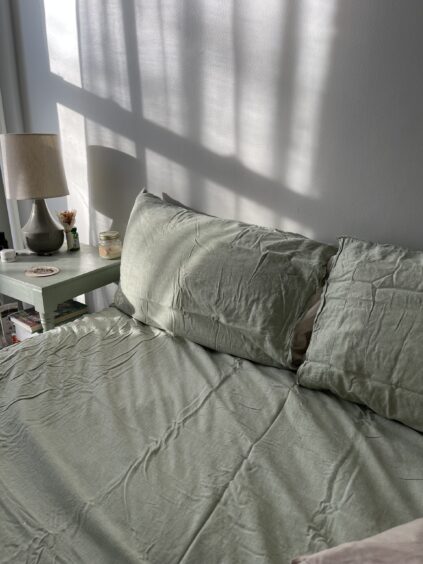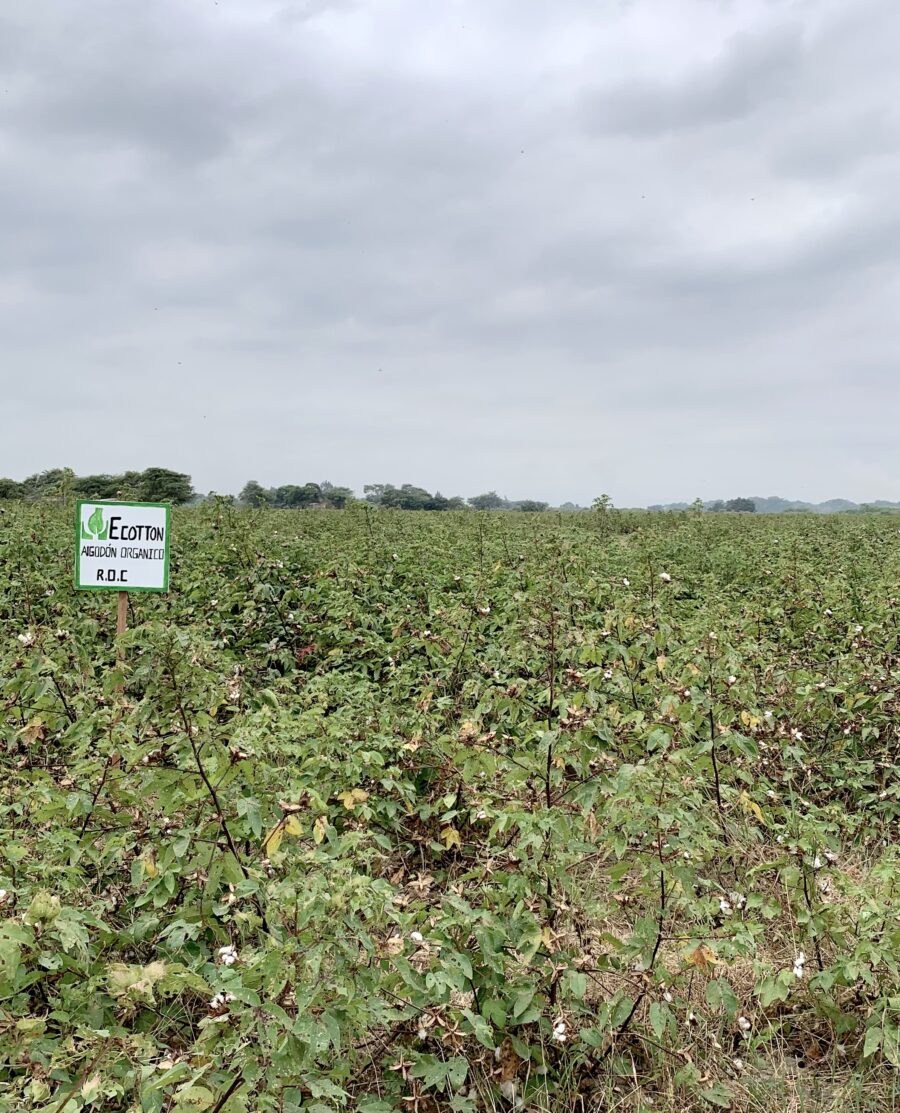
What I Learned From Visiting Outerknown’s Cotton Fields
It was an unexpectedly warm afternoon for the season and dust enveloped the van as we drove off the main highway. The handpainted signs reading Algodón Organico, or Organic Cotton, let us know we’d reached our destination: a regenerative organic cotton farm on the outskirts of Lambayeque, Peru.
It was spring, and I was traveling alongside Outerknown, a sustainable, LA-based apparel brand cofounded by surfer Kelly Slater, to visit the farms where they source organic cotton and regenerative organic cotton (ROC) for some of their garment collections, including the boyfriend shirt. As a longtime fan—I basically live in their blanket shirt during the fall—I was eager to visit the source and see first-hand how some of these shirts come together.
At the farm in Lambayeque, we met Orlando Rivera, CEO of Bergman Rivera, the cotton production company that Outerknown works alongside to source raw materials. Since 1986, Bergman Rivera has been helping farmers move away from conventional farming practices, which rely heavily on pesticides and can be harmful to the environment and human health. They are the first in Latin America to be certified under Global Organic Textile Standard, and their goal is to transition conventional farms across Peru to organic and regenerative organic; currently, they support more than 160 farming families in the country.
“They are the first in Latin America to be certified under Global Organic Textile Standard, and their goal is to transition conventional farms across Peru to organic and regenerative organic.”
In addition to working with Outerknown, Bergman Rivera supplies organic and ROC cotton to Patagonia, Veja, and other like-minded sustainable brands.
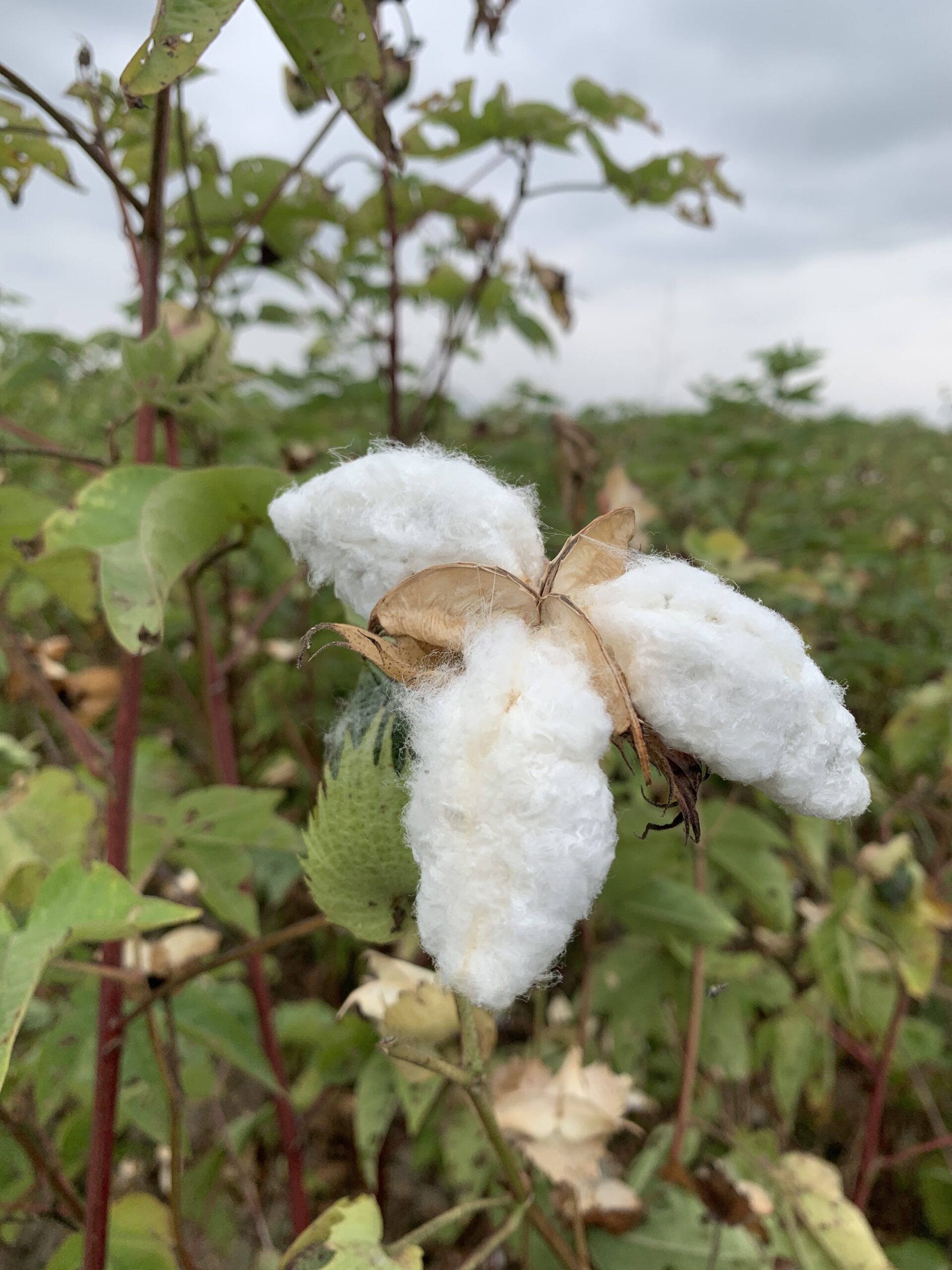
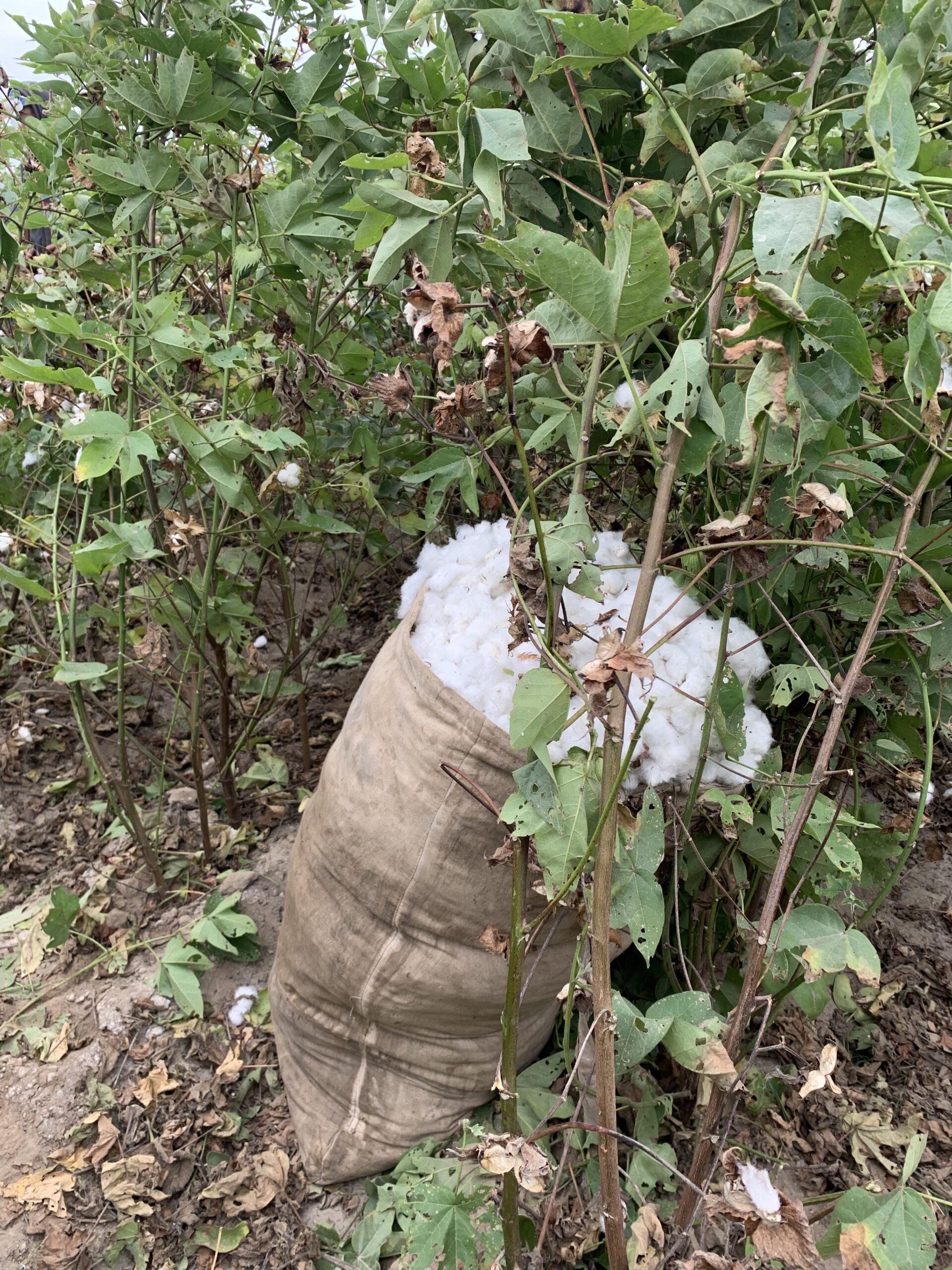
“[We’re] “bringing back to life the soil that has been losing its properties due to industrial farming,” explained Rivera as we walked the fields on that first day, seeing firsthand what organic and regenerative organic cotton fields look like.
Surprisingly, it was difficult to see much of a difference between the ROC fields, the organic fields, and the nearby conventional farms unless you knew what to look for. But once we got up and close to the cotton, we noticed small things, like cut-up water bottles tied to wooden posts dispersed throughout the fields. These were filled with a sugar-like liquid to attract bugs and deter them from the cotton plants—an alternative to pesticides. With regenerative organic farming, some main differences are little to no tilling, using cover crops to keep the soil fertile, and intercropping.
Regenerative organic practices also prioritize caring for farmers and workers and ensuring fair wages and labor practices. For example, we learned Bergman Rivera promises farmers they will buy their entire harvest regardless of whether it meets the set quota, which is crucial during climate change since farmers can’t be certain if or when storms will impact crop production. A recent cyclone in Peru and rising ocean temperatures, for example, caused unanticipated rain and the farms lost 30 percent of their harvest in early 2023.
“Regenerative organic practices also prioritize caring for farmers and workers and ensuring fair wages and labor practices.”
We had the chance to meet many of the farmers, too, and hear how organic and regenerative organic farming has impacted their work and lives. Wilmer Saldaña, a third-generation cotton farmer and the first in his family to transition to organic practices, told us that having a clean field means his health (and his family’s health) is no longer being harmed by pesticides and chemicals; it was one of the biggest reasons he was persuaded to move away from conventional farming.
In addition to seeing the cotton fields and the gins where the seed is sorted from the fiber, we visited the cut-and-sew facility in an industrial area of Lima where around 15,000 Outerknown garments are produced each month. Here, every garment complies with GOTS in terms of materials and production, meaning the clothing is made with 100% organic cotton (up to 5% of spandex is allowed), and all workers are eligible to work under Peruvian law and compensated according to fair trade certifications. We walked the aisles as employees made final alterations, added tags, and labeled t-shirts to be sent to the USA. Witnessing this process was humbling, to say the least.
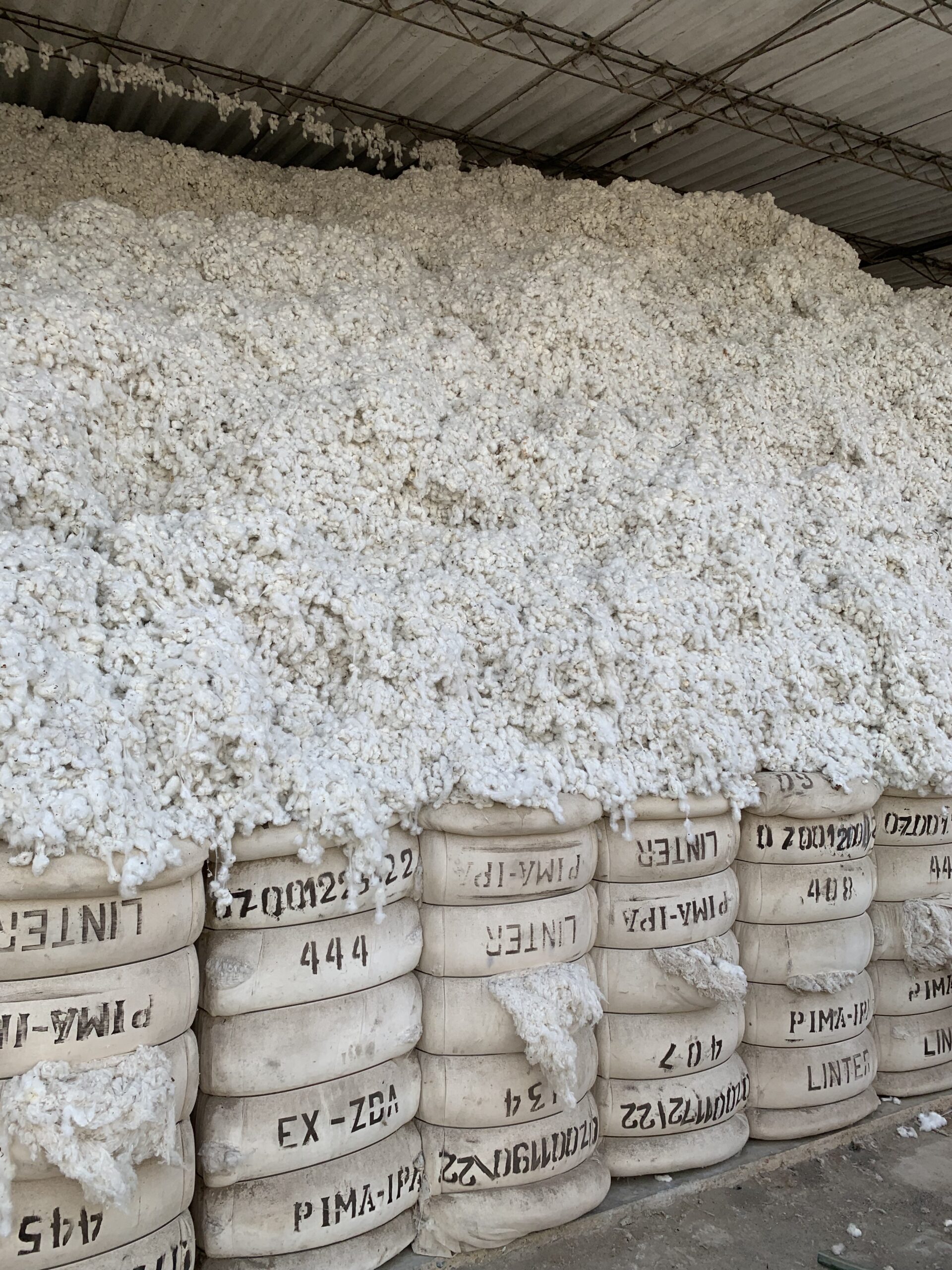
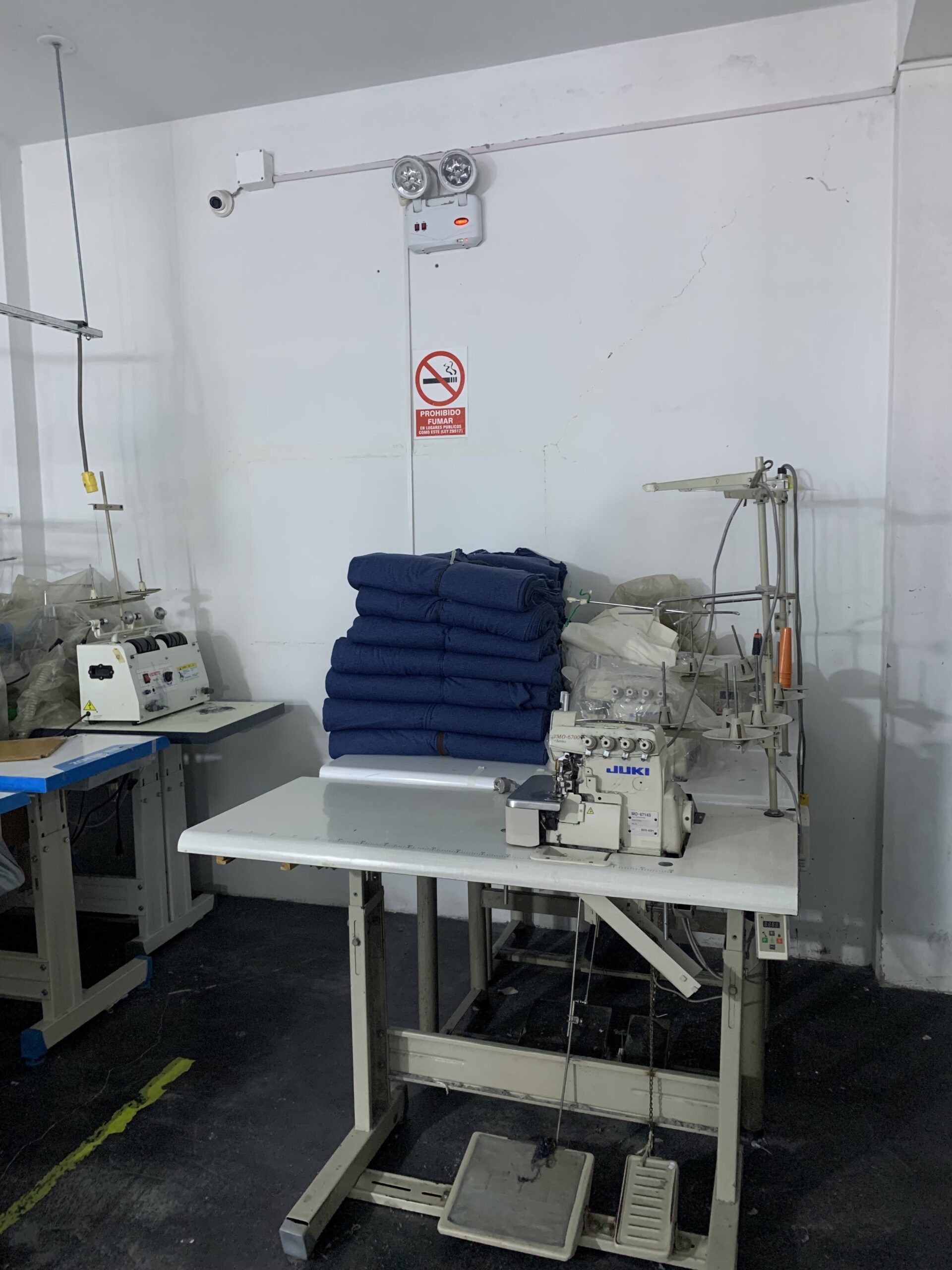
I also spent hours hearing from the Outerknown and the Bergman Rivera teams (we were in Peru for a week). Listening to them brainstorm and strategize ways to make the production model and garment collections even more sustainable was encouraging and a reminder that sustainability is always a moving target. Progress is the goal, as is listening and learning—specifically to those working at the production source—to implement change.
I’m grateful to Outerknown for inviting me on this trip and showing me first-hand what organic and regenerative organic certifications truly mean. Learning about all of this was not only educational but empowering as a consumer. Rarely does the customer get to walk the grounds where the very t-shirt on their back began as a seed. With Outerknown, I was able to do all of this and more. I held the cotton seed between my fingers and met the farmers who harvested the cotton that went into creating my shirt. I actually wore my boyfriend t-shirt on one of our days out in the fields and then again to the cut-and-sew facility. Following the garment’s origin and knowing I was walking the grounds where it all started felt extremely important.
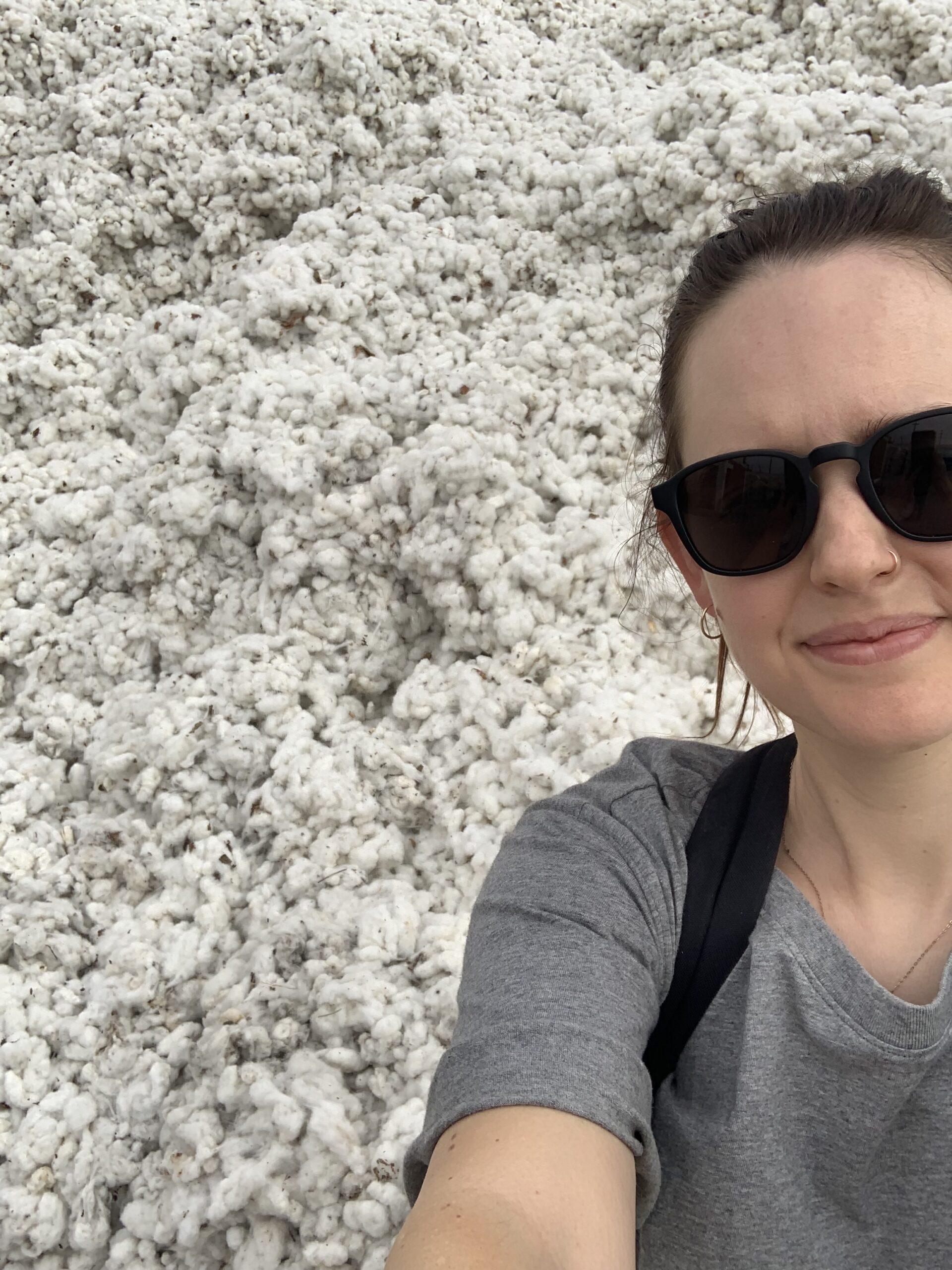
This trip with Outerknown was a reminder that a t-shirt is never just a t-shirt—many hours and hands go into garment production. There is a cost to the environment and people, which is why it’s more essential than ever to make conscious and mindful purchasing choices as consumers.
As of fall 2023, Outerknown’s Boyfriend Tee and Groovy Pocket Tee are 100% Regenerative Organic Certified Cotton.
Kayti Christian is the Managing Editor at The Good Trade. She has a Master’s in Nonfiction Writing from the University of London and is the creator of Feelings Not Aside, a newsletter for sensitive people.



